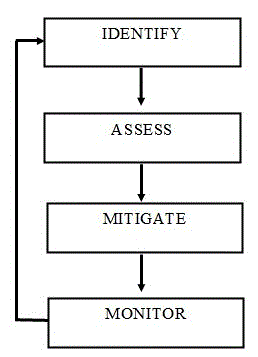“CORRUPTION and nationalism are hot- button issues even when a decision has many merits,” lamented state enterprise researcher Agung Wicaksono to The Straits Times during a recent interview. “People tend to look at the political issues and forget the business aspects.”
Nothing illustrates the truth of this statement better than the case of Krakatau Steel, Indonesia’s largest steelmaker. The company, which has assets worth an estimated 11 trillion rupiah (S$1.7 billion), is slated for privatisation this year to help fund the widening budget deficit.
But the process of deciding how this should be done has revealed just how difficult it is in Indonesia to overcome vested interests and produce a decision that will give the maximum benefit to the country.
After months of controversy, State Enterprises Minister Sofyan Djalil announced in June that the government had decided to list the company on the Jakarta Stock Exchange through an initial public offering (IPO). The announcement meant that the authorities had effectively abandoned earlier plans for a strategic sale, which would involve selling a substantial minority of the shares to a foreign company operating in the same industry. Supporters of the IPO option argue that the move will contribute to the development of the local capital market and possibly encourage other industry players to list on the exchange.
But the real reason is that it is politically easier. With the share price being set by the open market, there are unlikely to be many complaints about corrupt officials manipulating the selling price. And with nationalist sentiment running high as parliamentary and presidential elections approach, an IPO is less likely to be denounced as a sell-out to foreign interests.
Any share sale of state-owned enterprises has to be approved by Parliament, which could hold up the process, particularly if a foreign investor is involved. This is because Krakatau Steel has long been seen by nationalist politicians as a strategic asset as a result of its links to state-run defence contractors such as PT Pindad in West Java.
But while an IPO would help the government plug the budget deficit, it is unlikely to enhance the firm’s competitiveness. “An IPO may get you money, but it will not get you better management. The fundamental problem is performance,” says Mr Agung. Ms Elvira Tjandrawinata, from Danareksa Securities in Jakarta, agrees: “The company has long been less efficient then its peers.”
The firm’s management counters by pointing to the company’s massive first-quarter profit this year. But this ignores the influence of currently high international steel prices on the company’s bottom line. Analysts favouring a strategic sale point out that IPOs tend to attract investors who are interested only in short-term capital gains. A strategic sale, on the other hand, is more likely to produce a business partner that can provide the capital, technology and managerial expertise. “The current management is resistant to a strategic sale because it would produce a new partner with a big say in how the company is run,” notes Ms Elvira.
Foreign companies that have expressed an interest in buying into the company include Tata Steel of India, Posco of South Korea, BlueScope of Australia and Essar of Japan.
Strategic sales may be good for the country, but rarely win kudos for their organisers. The sale of Indosat shares to a subsidiary of Singapore’s Temasek Holdings in 2002 is just one example. Equally pertinent is Cemex’s ill-fated purchase of cement producer Semen Gresik in October 1998. The Mexican company sold out to a local conglomerate in October 2006 after years of disruption. Local politicians combined with labour and management at several of Gresik’s subsidiaries to oppose the purchase.
The same thing could happen to a strategic investor in Krakatau Steel. The company’s blast furnaces and steel mills are located in the province of Banten in Java, where many residents regard employment at the company both as a right and as a source of local pride. When Indian steelmaker Arcelor Mittal showed an interest in acquiring Krakatau Steel in 1998, Muslim critics alleged that the sale would result in Hindu managers running the company. Given this history, “it would not be very difficult for local politicians and interest groups to stir up opposition to the presence of other foreign managers”, argues Mr Agung.
Having failed to gain a direct stake in Krakatau Steel, several foreign steelmakers have recently submitted proposals to the government involving the construction of steel mills from scratch, some of which would have almost no local participation at all. Ironically, by blocking a strategic sale of Krakatau Steel on nationalist grounds, vested interests may have relegated the company to little more than a minor player in the future development of Indonesia’s steel industry.
Copyright © 2008 Singapore Press Holdings Ltd

